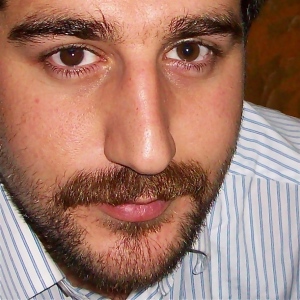by Ray Sikorski
ISTANBUL, TURKEY – There is a soft-spoken intensity about Ayşe Ulu, a 19-year-old Turkish acting student. With only inches between us, her eyes seek out mine and never look away.
This has always been Ulu’s way. She was 13 in her home town of Izmit when she saw her first play. She sat in the front row, but it was as if she was in the play itself.
“I was trying to see their eyes – eye contact, always,” she says. “I was right in the scene – I feel it. When they smile, for example, it’s just as if they look at me and smile for me. I was feeling like one of them, on the stage. But I’m doing nothing, only watching.”
Afterwards, she told the actors how much she enjoyed their performance, and they invited her to watch them rehearse. This was the start of her love for theater – a passion that marked her so indelibly that the fabric between the stage and real life wore down to mere threads. At first, Ulu was more than pleased to become the souffleur, or prompter, because it meant playing every role in the performance.
“You have to know all the text, and you must be interested in all,” she says. “And I don’t want to take only one part of it. I was in all the play.”
Now a student of Guidance and Psychological Counseling at Istanbul’s Bosphorous University, Ulu hopes her training as actress will help her control the strong emotions that come naturally to her.
“I will be a counselor and some people will come to me with their problems, and I shouldn’t cry with them,” she says, laughing. “Maybe theater will educate me in this way.”
Since my own experience with acting classes in America was quite the opposite – I wanted to learn how to bring out emotions I naturally suppressed – I asked her if this was common in Turkey.
“It is common,” she says. “For all people interested in theater.”
The primary difference between theater in Turkey and America, she says, is the culture of theater-going. Whereas in America it’s not unusual for parents to take children to plays, in Turkey entertainment revolves squarely around the T.V. set. This, combined with low wages, results in a theater scene that has little support, even at a prestigious university such as Bosphorous.
“We can’t study on a real stage, we are studying in a classroom. You have to prepare posters, but you can’t have enough,” she says. “And people hear but can’t come – again, economic reasons.”
Added to that is the pressure a woman actress has in a patriarchal society. Ulu says that Turkey’s conservative culture often interferes with the intent of the play.
“On stage, you should kiss a man because it’s your role, but people think this is not good – ugly things, you can’t show these kind of things. And women should wear more clothes.”
Adding to her frustration is the lack of respect that women actresses and directors are often shown in comparison to men. She keeps her acting classes a secret even from her parents.
“I will have a good job, and I will have a husband, I will have a good life, get good money, have children, they want grandchildren,” she says of her parents’ expectations. She contrasts that with the intensity of performance.
“This is the best thing – trying to show people what you feel,” she says. “No other thing tests me. Only theater gives that feeling to me.”
∞
Ray Sikorksi wrote and directed his first one-act play in 1988, and his second 20 years later. He is a freelance writer based in Bozeman, Montana, and is currently traveling in Turkey, wondering if he can find someplace where they sell peanut butter.

